Vocational Training Team
Mon, Aug 21st 2023 at 6:30 pm - 8:30 pm
This is the District Executive meeting

How do you get started.
Decide on your area of focus
- peace andconflict prevention / resolution
- Disease prevention and treatment
- Water and sanitation
- Maternal and Child Health
- Basic education and literacy
- Economic and community development
Community Needs Analysis
VTT is for the area of focus- maternal and child health
Understand the health situation in the country
Health statistics were obtained from the Kamuli District Local Government 5 year strategic plan, orphans and other vulnerable childrens programme 2008-2013. It identified that Infant mortality is 76 per 1000 live births and Maternal Mortality is 506 per 100,000. The majority of women deliver at home. Health facilities deliver 33% of deliveries. Kamuli District has 25 registered midwives and 83 enrolled midwives for a population of 662,407. The midwives are located in Kamuli Mission Hospital, Local Government Hospital and health centres.
Community Needs identified
How do you identify the need.
This was done by visiting Kamuli Mission Hospital in April 2010 and the initial discussions were held with the Nursing and Midwifery School at Kamuli Mission Hospital for training aids and resources such as books and models to improve their educational facilities. This resulted in a review of aids and books available that would meet the needs of the Training School and suit the local socio-economic climate. (There is an intermittent power supply, so computers are not necessarily the first requirement)
Use observational studies
The Rotarian worked on the Maternity Unit and saved 5 babies in a month through neonatal resuscitation and used the skills obtained from annual emergency skills and drills training that she received in the UK. The information would be easier to share if training could be done using manikins rather than doing it on babies or mothers that require resuscitation.
Use a current format if possible
Emergency Skills and drills in Obstetrics have improved Maternal and Neonatal outcomes in the United Kingdom. Therefore it is planned to do an adapted programme of emergency skills and drills that takes into account local
resources available. Advanced Life Support in Obstetrics (ALSO) has an adapted course for Malawi. ALSO is one method of training midwifery and Obstetric staff and it is normally done over 2 days in the UK but generally staff receive a 3 hour update annually.
Be aware of local, national and international agendas. The World Health Organisation has a Safer Motherhood project in which Uganda is participating.
Find an International Rotary Club as a partner in your project.
To get a global grant a local Rotary Club is required to support the project as well. The RC Kyambogo-Kampala is the international host club.
Financing
The money raised is half matched by District Grant and then matched by RI. It has to make $30,000 to get a global grant.
VTT team must be selected prior to submitting the grant
Sustainability is key
How will they maintain the momentum. What are the statistics that you are going to use. How will you monitor outcomes.
Let you know as the team develops.
Rotary District 1090 Vocational Training Team
The journey started when Rotarian Gillian Pearce worked for a month at Kamuli Mission Hospital, Uganda. She worked as a midwife and observed local practices especially the method for newborn life support which was to tickle the chest or squeeze it. She asked the local midwives and the school what facilities and equipment they had. It was limited. There was no resuscitation baby to practice on. The students started on the ward with little or no training in obstetric emergencies.
She returned to the UK thinking about how she could train the midwives and nurses in Kamuli using British techniques in training staff in birth emergency schemes. However the scheme would not have started if playwright Rotarian Joan Greening had not allowed the proceeds from one of her plays to act as the seed money and the support of the Rotary Club (RC) of Elthorne-Hillingdon. District Governor John Greening was also determined to have a Vocational Training Team in his year. So the project started. The global grant was achieved by working with RC of Henley Bridge who were raising money to rebuild the maternity unit.
District 1090’s Foundation Committee helped with finding candidates for the team by distributing information to other Rotary Clubs and hospitals. They also brought together different Rotarians to help with the interviewing, in total 13 clubs were involved. The successful team members were Aisha Alzouebi, Senior Obstetric Registrar, Jide Menakaya, Consultant Neonatologist, Practice Development Midwife Jacqui Gillibanks and Laura Wallbank senior midwife.
Now the planning began. Decisions were made about which equipment was essential and required for the trip and how the training would be delivered. One of the main areas of training was newborn life support this is in response of reducing deaths of babies, 1 million babies die on their first day of life. We also covered obstetric haemorrhage, eclampsia, shoulder dystocia, maternal sepsis and breech deliveries. A training manual was developed. It was left with them.
Although information was sought from the medical superintendant and the training proposed emailed to them, we were still presented with on the first day that there were problems with maternal sepsis training proposed because savlon had grown bacteria and 7 women had died from sepsis in March2014. Quick change of plans occurred and a discussion on hand cleaning occurred. It was also necessary to pay staff to attend training it was catch 22 either pay and they turn up or don’t and no-one comes. This is a side effect of USA agencies spending money on training.
The training was a success in that we trained 246 doctors, nurses, midwives, tutors and students in 11 days. We did a pre and post assessment test and it demonstrated that learning had occurred but we will be returning to evaluate the long-term effect. There was a cadre visit from Rotary International who was impressed with the work done. The telling points were from the women “ if there was no maternity unit we would deliver in the bush” and from the staff this is the first time we have had practical training and they have left us with the equipment rather than handouts to carry on practicing”.
Gillian Pearce
Related pages...
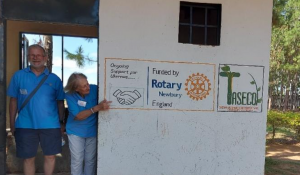
Newbury Rotary’s impact in Ukerewe, Tanzania
more Rotary has been supporting Ukerewe, a remote island in Lake Victoria, since 2008.
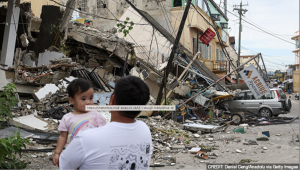
Earthquakes & Typhoons in Philippines
more A powerful 6.9 magnitude earthquake struck the Philippines, just days after back-to-back typhoons and flooding.

The Maidenhead Henderson Project
more An International project being set up by Maidenhead Rotary Club with a Foundation Global Grant that needs more funds

ShelterBox Disaster Response
more Clubs throughout District 1090 are keen supporters of Shelterbox and respond in times of need in addition to contributing to this award-winning charity on a regular basis.
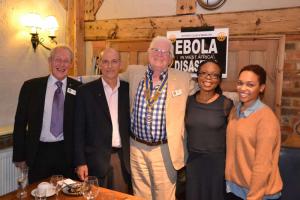
Ebola Treatment and Prevention
more When the deadly Ebola virus was killing thousands of people in West Africa, Brian Jonson and Marlow Rotary club sprung into action partnering with RC Monrovia in Liberia. Lives were saved and the partnership endures to address the aftermath of the crisis.
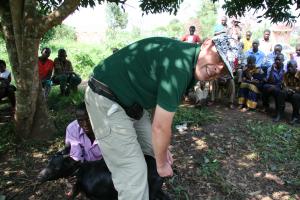
Microcredit
more Microcredits and animal husbandry education
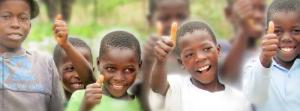
Creating Better Futures
more Partner organisation for District 1090

Twinning Schemes
more Information on the opportunities for fellowship with Rotarians around the globe.
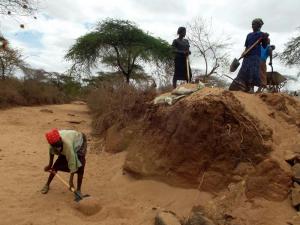
Sand Dams
more Creating clean water storage in dry lands, using local resources and creating sustainable futures

Goodwill and Growth for Africa
more Working, funding and forging relationships with organisations which aim to alleviate the effects of poverty, disease (HIV/AIDS) and violence on African children and the greater communities that they live in.
Rotary Doctor Bank
more Rotary Doctor Bank is a charity run by Rotarians in South Wales and maintains a register of doctors and nurses who carry out voluntary work abroad.
The Rotary 'Box' Schemes
more The Rotary Box Schemes are an important contribution to practical aid in countries suffering from poverty and disasters.
back to page above this...
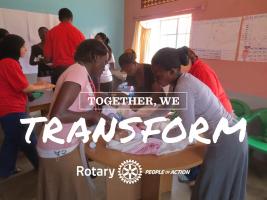
International Service
back Our partnerships with communities and organisations overseas, providing safe water, promoting maternal and child health, responding to natural disasters and supporting those in conflict zones